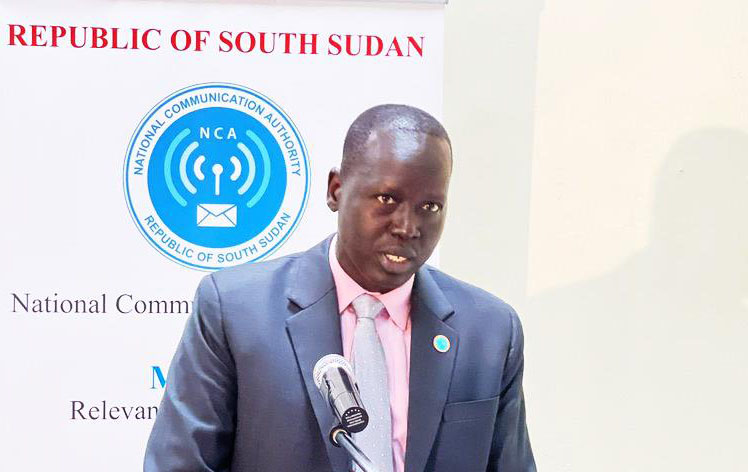By William Madouk
Director General of the National Communications Authority, Napoleon Adok, has raised concerns about the dumping of electronic waste in South Sudan.
Mr. Adok, who spoke at the launch of the Thuraya satellite operator service on Tuesday, said South Sudan has received over 100,000 Thuraya trademark devices, but they are unsure of their whereabouts after use.
“Our estimates for the last five years are that Thuraya has supplied close to 150,000 devices for different services in our country,” said Adok.
“Some are walking in through neighboring countries; many have been brought through East Africa; others have been flown into our country,” he added.
A record 53.6 million metric tons (Mt) of e-waste—discarded products with a battery or plug such as computers and mobile phones—were reported to have been generated worldwide in 2019, up 9.2 Mt in five years, according to the third edition of the Global E-waste Monitor 2020 launched in July 2020.
Toxic and hazardous substances such as mercury, brominated flame retardants (BFR), or chlorofluorocarbons (CFCs) are found in many types of electronic equipment and pose severe risks to human health and the environment if not handled in an environmentally sound manner.
But with the huge number of devices imported into the country, Mr. Adok now wonders where this electronics waste ends up after use.
“With these devices, we don’t know where they are all thrown, resulting in the concern of electronic waste,” he noted.
“We don’t know whether those people who are using them have value for their money. So, who is servicing that equipment?” he added.
According to him, the idea now led Thuraya to appoint Gate for Technology, or G4T, in their own commercial arrangement to be an agent in South Sudan.
He appealed to all the other satellite telecommunication firms to follow suit and appoint representatives in the country.
“We will, from now on, outlaw any other illegal smuggling of satellite equipment into our country that does not conform to the law,” the NCA boss warned.
Mr. Adok said the public will be able to go and purchase Thuraya with no restriction, adding that there will be a folder to be filled and one will be cleared to take it anywhere they want to go.
“We think that the telecommunications industry is doing its best to accelerate rural connectivity. But our country is very big,” he added. “There are many places where it’s going to take a while to go there. There are still a large number of Thurayas in the country.”
As a regulator, Adok said NCA would create a conducive environment to enable investment opportunities while investors adhered to laws and regulations.
According to the NCA, South Sudan’s communication sector remains challenging in many parts of the country, with an estimated 60 percent of the country still uncovered by communication networks.




